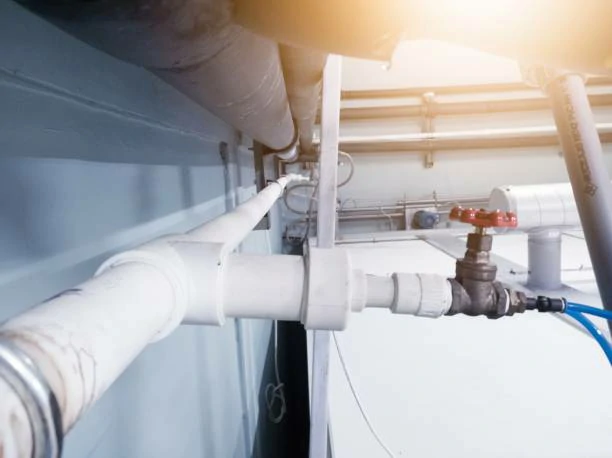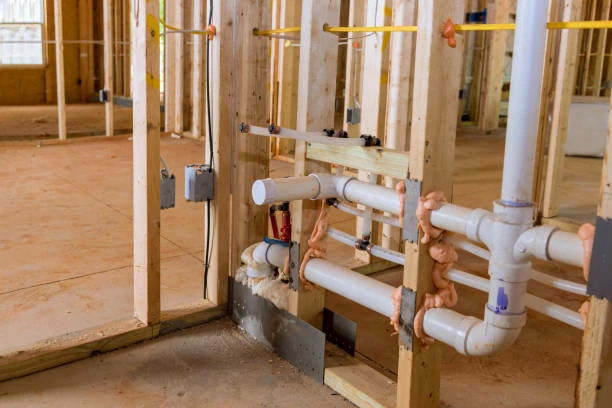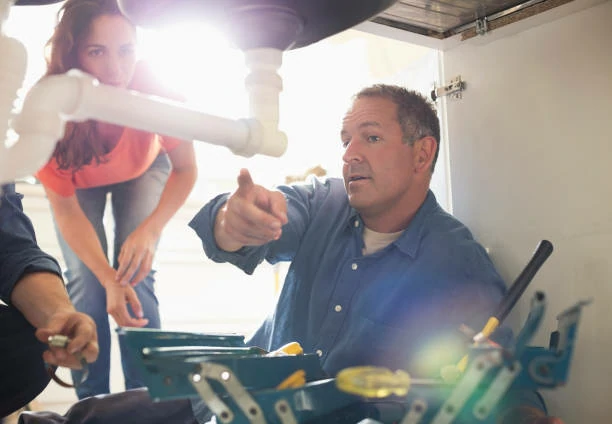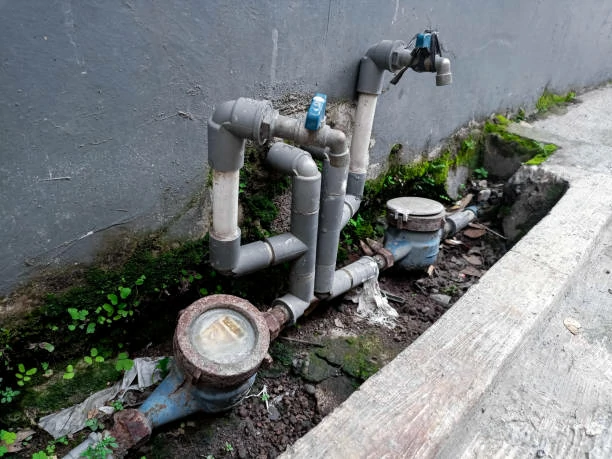PVC tubing, widely used across various industries, offers significant environmental benefits that make it a responsible choice for modern construction, plumbing, and electrical systems. The environmental advantages of PVC tubing stem from its energy efficiency, long lifespan, recyclability, and low environmental impact during production and disposal. These factors contribute to the growing preference for PVC tubing in sustainable building practices and eco-friendly applications.
Energy Efficiency in Production
The production process for PVC tubing consumes less energy compared to many other materials used in similar applications. The raw materials for PVC include chlorine, derived from common salt, and ethylene, which comes from petroleum or natural gas. The extraction and processing of these materials require less energy, contributing to the overall lower energy footprint of PVC tubing.
PVC’s energy-efficient production process also translates to reduced greenhouse gas emissions. For instance, the production of PVC tubing emits fewer carbon dioxide equivalents compared to alternative materials like metals or ceramics. This reduction in greenhouse gas emissions aligns with global efforts to combat climate change by lowering the carbon footprint of industrial processes.
Furthermore, manufacturers have continuously improved the energy efficiency of PVC production. Advances in technology and process optimization have minimized energy consumption and waste generation during manufacturing. These improvements make PVC tubing an increasingly sustainable option, especially in industries aiming to reduce their environmental impact.
Long Lifespan and Durability
The long lifespan of PVC tubing significantly enhances its environmental credentials. PVC tubing can last for decades without significant degradation, reducing the need for frequent replacements. This durability means fewer resources are required for maintenance and replacement, leading to less waste and lower demand for raw materials.
For example, in water distribution systems, PVC tubing can function effectively for over 50 years. Its resistance to corrosion, chemical degradation, and wear ensures that it maintains its structural integrity over time. This longevity contrasts sharply with materials like metal, which may corrode or degrade much faster, necessitating more frequent replacements and increasing environmental impact.
The long lifespan of them also contributes to reduced environmental disruption. By extending the interval between replacements, PVC tubing minimizes the environmental disturbances associated with manufacturing, transportation, and installation. This reduction in disruption aligns with sustainable construction practices that aim to preserve natural habitats and reduce human impact on the environment.
Recyclability and Material Recovery
PVC tubing offers excellent recyclability, which plays a crucial role in its environmental sustainability. At the end of its useful life, PVC tubing can undergo recycling to recover its raw materials. The recycling process involves mechanically grinding the PVC into small particles, which are then melted and reformed into new products. This process reduces the demand for virgin materials and helps conserve natural resources.
Recycling PVC tubing also reduces the amount of waste sent to landfills. Instead of discarding used tubing, recycling transforms it into new products, thereby contributing to a circular economy. This approach reduces the environmental burden of waste disposal and promotes the responsible use of resources.
Moreover, recycled PVC retains most of its original properties, allowing it to perform just as effectively as virgin PVC. This retention of quality means that recycled PVC tubing can meet the same standards and specifications as new tubing, making it a viable option for various applications. The ability to recycle PVC multiple times without significant loss of performance further enhances its environmental benefits.
Low Environmental Impact During Use
During its use, PVC tubing contributes to environmental sustainability by offering several benefits that reduce the overall environmental impact of infrastructure projects. One of the key advantages of them lies in its lightweight nature. PVC tubing is significantly lighter than metal or concrete alternatives, making it easier to transport and install. The reduced weight lowers fuel consumption during transportation, resulting in fewer greenhouse gas emissions.
In addition, the lightweight nature of them simplifies installation processes, reducing the need for heavy machinery and extensive labor. This reduction in energy-intensive activities contributes to a smaller environmental footprint for construction projects. The ease of installation also translates to lower overall project costs, making sustainable building practices more accessible.
PVC tubing also exhibits excellent chemical resistance, which extends its usability in various environmental conditions without the need for protective coatings or treatments. This resistance reduces the release of harmful chemicals into the environment, as PVC tubing does not require frequent maintenance with potentially hazardous substances. The material’s stability ensures that it does not leach harmful chemicals into the soil or water, further protecting ecosystems and human health.
Environmental Impact of Raw Material Extraction
The raw materials for them include chlorine, which comes from common salt, and ethylene, derived from petroleum or natural gas. The extraction of these materials has a relatively low environmental impact compared to the mining and processing of metals or other non-renewable resources. Salt, for example, is abundant and widely available, and its extraction involves minimal environmental disruption.
Ethylene, though derived from fossil fuels, represents a small fraction of the overall material composition of them. The efficient use of ethylene in PVC production ensures that the environmental impact remains low, especially when considering the long lifespan and recyclability of the final product. This efficient use of raw materials highlights the environmental advantages of them over alternative materials with higher extraction and processing impacts.
Contribution to Sustainable Building Practices
PVC tubing aligns with the principles of sustainable building practices, which prioritize energy efficiency, resource conservation, and environmental protection. Its environmental benefits make it an attractive option for green building projects, which seek to minimize the ecological footprint of construction activities.
PVC tubing contributes to the energy efficiency of buildings by providing effective insulation for water and electrical systems. This insulation reduces energy losses, thereby lowering the overall energy consumption of the building. In plumbing applications, PVC tubing’s smooth interior surface reduces friction, allowing water to flow more efficiently and reducing the energy required for pumping.
In addition to its energy efficiency, PVC tubing supports water conservation efforts. The material’s resistance to leaks and corrosion ensures that water distribution systems operate with minimal losses, helping to conserve this vital resource. PVC tubing’s reliability in maintaining water-tight systems makes it a preferred choice for sustainable plumbing solutions.
PVC tubing also supports the use of renewable energy technologies. For example, in solar thermal systems, PVC tubing serves as a conduit for transporting heated water, contributing to the efficient operation of renewable energy installations. Its compatibility with renewable energy systems further enhances its role in promoting environmental sustainability.
End-of-Life Disposal and Environmental Considerations
At the end of its life cycle, PVC tubing offers environmentally responsible disposal options. While recycling represents the most sustainable end-of-life option, PVC tubing can also undergo safe incineration. When incinerated in controlled conditions, PVC tubing generates energy while minimizing harmful emissions. Modern incineration facilities use advanced technologies to capture and neutralize emissions, ensuring that the process does not contribute to environmental pollution.
In cases where recycling or incineration is not feasible, PVC tubing can be safely disposed of in landfills. The material’s inert nature ensures that it does not leach harmful chemicals into the soil or groundwater, making it a stable option for long-term waste management. However, efforts to maximize recycling and recovery should always take priority to minimize landfill use and promote resource conservation.
Top 10 PVC Tubing Manufacturers in the World by Revenue
| Company Name | Headquarters | Revenue (USD) | Year Founded |
| ChemChina | Haidian District, Beijing, China | 46.5 Billion | 1984 |
| Formosa Plastics Corporation | Kaohsiung City, Taiwan | 36.09 Billion | 1954 |
| Dupont | Midland, Michigan, United States | 21.57 Billion | 1802 |
| LG Chem Ltd | Seoul, South Korea | 20.04 BIllion | 1947 |
| Shin-Etsu Chemical Co., Ltd. | Tokyo, Japan | 14.2 BIllion | 1926 |
| Westlake Chemical Corporation | Houston, Texas, United States | 8.63 Billion | 1986 |
| Axiall | Atlanta, Georgia, United States | 8.6 Billion | 1985 |
| Orbia | Mexico City, Mexico | 6.4 Billion | 1953 |
| Celanese Corporation | Irving, Texas, United States | 6.29 Billion | 1918 |
| PolyOne Corporation | Avon Lake, Ohio, United States | 3.24 Billion | 2000 |
Conclusion
PVC tubing offers significant environmental benefits, making it a sustainable choice for a wide range of applications. Its energy-efficient production, long lifespan, recyclability, and low environmental impact during use and disposal contribute to its growing popularity in eco-friendly construction and infrastructure projects. By choosing PVC tubing, industries and builders can reduce their environmental footprint, conserve resources, and support sustainable development goals.
Contact
IFAN is a professional manufacturer with 30 years of experience, dedicated to producing high-quality plastic pipes, fittings, and valves. Our products include brass valves, PPR valves, as well as various pipes and fittings to meet different customer needs. Whether you need plumbing and drainage pipes or valve products, IFAN can provide a diverse range of high-quality, cost-effective products to support your projects. Below is our contact information.
We will reply your email or fax within 24 hours.
You can call us at any time if there is any question on our production.
For more information,pls visit our webside https://www.ifanplus.com/
Pls Mailto: [email protected]
Whatsapp: + 86 19857948982






